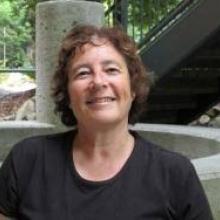Member Spotlight: Margarita Azmitia, Ph.D.
Professor, Psychology Department, UC Santa Cruz
What does being part of the Latinx Caucus mean to you?
Being a member of the Latinx Caucus gives me the opportunity to collaborate and network with members of the Latinx and other Caucuses to serve minoritized scholars and promote diversity, equity, and inclusion in SRCD. Over time, we have been able to work together to create programming during the conferences as well as prepare important position papers and policy briefs about essential issues such as separating undocumented children from their families and the inhumane conditions at detention centers at the U.S. border. Being a member of the Latinx Caucus Steering Committee also allows me to co-develop projects such as mentoring the younger generation of SRCD scholars.
Do you have a mentor or mentors who have been instrumental to your career and, if so, whom and how?
I have been fortunate to have several mentors in my career. Marion Perlmutter, my mentor in graduate school, helped me develop my program of research. Over the years, she has provided valuable advice and connected me with other scholars in the field. So has Barbara Rogoff, who I met as a graduate student at the University of Minnesota. She helped me get my first job, a visiting assistant professorship at the University of Kansas. At my first tenure track job at Florida International University, Bill Kurtines invited me to collaborate on papers and research, and because I am a very shy person, helped me network and meet developmental scholars. When I came to UCSC in 1989, Catherine R. Cooper and Eugene García provided additional mentoring and helped me write Spencer Foundation Postdoctoral fellowship that allowed me to start my work on children's friendships. We then collaborated on longitudinal studies on the role of family and peers in low-income Latinx and White adolescents' transition to middle school. Pamela Roby, in the sociology department, helped me think about friendship coalitions and power in friendships and other relationships, and more recently, has been an intellectual guide in my work on the development of identity intersectionalities in adolescents and young adults.
What words of wisdom might you pass on to someone on their very first day after deciding to get a Ph.D. in developmental science or a related field?
Have the courage to apply and know that you are qualified (or if not, find out what qualifications you need to acquire, such as research experience, improving your writing and oral communication, etc.). Then, write a to-do list that includes making specific plans for: (1) Talking to your professors and, if available at your university, graduate students about their experiences and suggestions for a graduate program. (2) Doing your homework and finding programs that house faculty and programs in your interests. (3) Making sure you meet the qualifications for the programs you want to apply for and if not, spending time acquiring these qualifications. (4) Emailing the professors in programs you are interested in applying to telling them about your interests and asking them if they are accepting graduate students. (5) Asking faculty that know your academic work whether they will read and edit your statement of purpose and application and write you a letter of recommendation. (6) Talking to your family about your desire to go to graduate school in developmental science or a related field.
What is a typical day like for you?
I get up at 4am, make coffee and then write until 6:30am, when I get ready to go for a walk. When I return, I talk with my daughters and either briefly scan my email or make a to-do list. Then I work until noon when I take another walk and have lunch. Most days I make time to take a short nap, and then meet with students, respond to email, read papers, teach or write lectures, and do my committee work. I usually stop at 5 pm and go walking again. Then, I spend more time with my daughters and if they are around we have dinner together. After dinner, I read a novel or watch something on Netflix or Hulu. During the pandemic, I have learned from watching a lot of webinars offered by SRCD, SRA, AERA, and other professional societies.
The 2021 Hispanic Heritage Month theme from the National Council of Hispanic Employment Program Managers is "Esperanza: A Celebration of Hispanic Heritage and Hope.' What brings you hope?
My daughters and other young people and scholars give me hope with their activism for social justice and equity. The last two years have been so challenging with the pandemic, the political chaos, the cruelties perpetrated against children and their families in detention centers at the U.S. border, racism, and police brutality. Young people--adolescents, young adults, and developmental scientists are working for social justice and change. The support from SRCD for the Caucuses also gives me hope because it is important to me that my professional societies support diversity and work for social justice and change.
